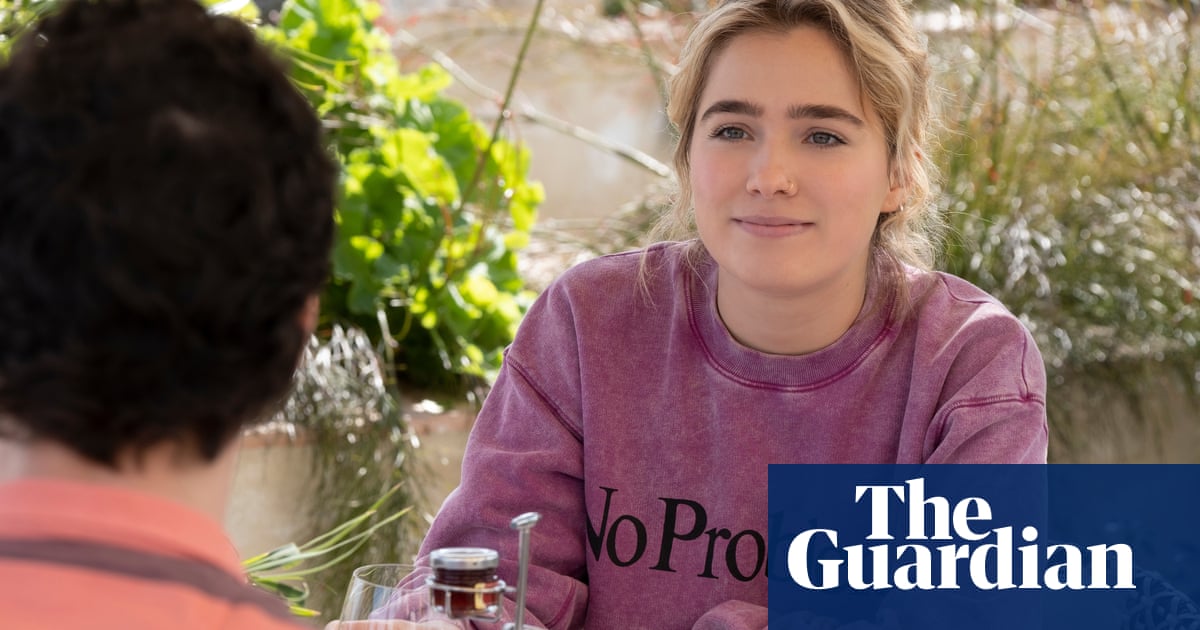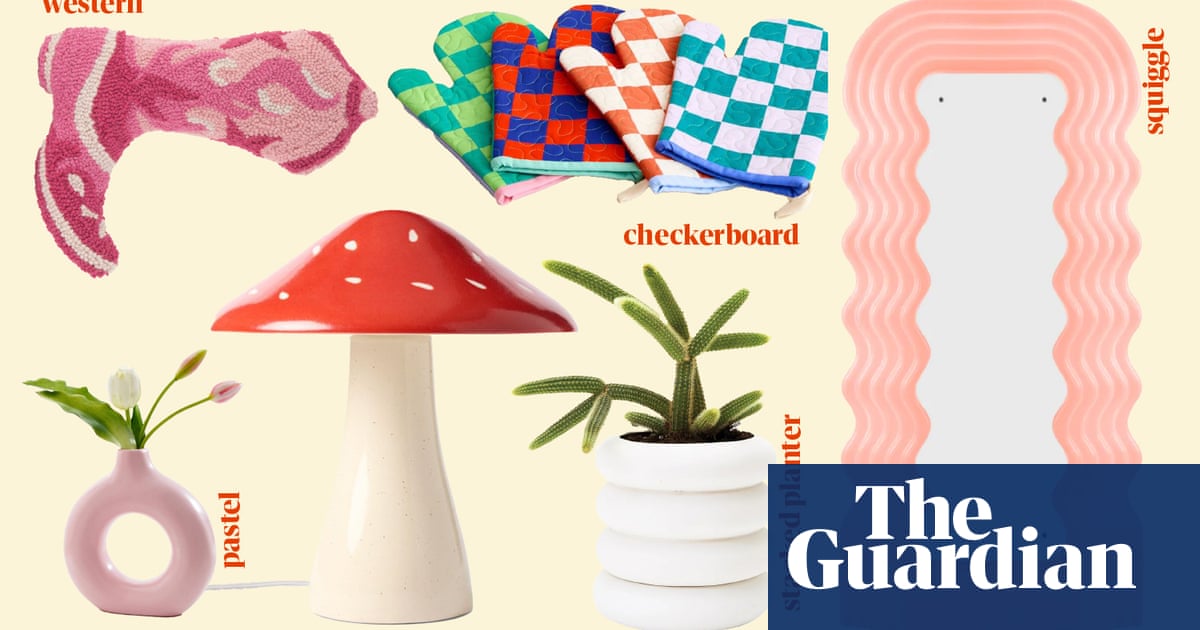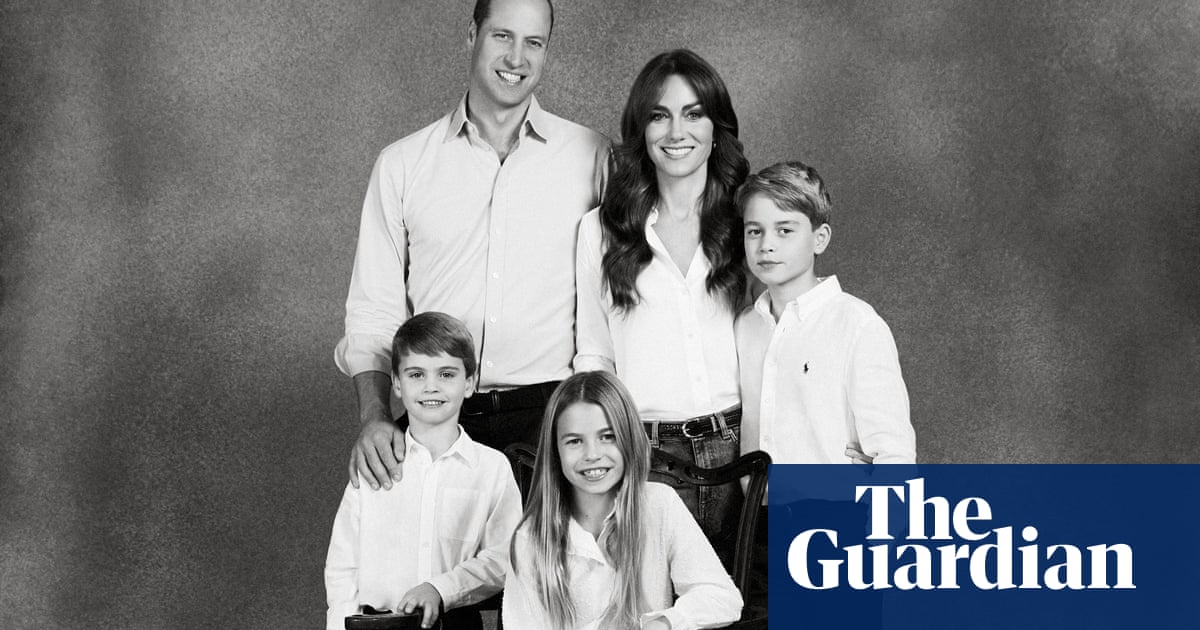
Despite all manner of global catastrophes facing young people, Gen Z’s preferred style of streetwear telegraphs pure ease. Garments emblazoned with the phrase “no problemo” are everywhere, from Zendaya’s tortured Euphoria character to Portia, the pathologically bothered assistant in the second series of White Lotus. In real life, Manchester City striker Erling Haaland and Bones and All actor Taylor Russell have been spotted wearing them. And the “no problemo” tee has become a de facto uniform for creative workers across the UK. They are the work of Aries, a London-based skater label founded in 2009 that has quickly gained cult status through its ironic and smartly designed sloganwear.
Slogan tees in general are back with a vengeance, loved by Gen Z for their social media-ready mixture of irony and earnestness – and brands that are communicating esoteric, ultra-specific moods are the flavour of the day.
For top-tier celebs, a T-shirt will do a job that usually requires press releases, Instagram captions and interviews. On the day her last album was released, British pop star Charli XCX was papped wearing a tee reading “They don’t build statues of critics”. When she walked into a Brits afterparty empty-handed earlier this month, her shirt announced she was a “real winner”. Shortly after New York magazine published its deep-dive into the world of Hollywood “nepo babies”, Hailey Bieber, daughter of actor Stephen Baldwin, wore a top that read, simply, “nepo baby”. Olivia Rodrigo is “God’s favorite”, while Julia Fox, who shot to fame after briefly dating Kanye West, is a “starfucker”. The Instagram feeds of fashionable twentysomethings, too, are filled with “God’s favorite” handbags and “father, son, holy spirit” bikinis – both by the edgy American streetwear brand Praying.
Shirts run the gamut from the inscrutable – a “Men in Music Conference” tee by the Los Angeles-based Hollywood Gifts will only make sense to die-hard Lana Del Rey fans – to broad-based and cheekily transgressive, such as the “fag” sweatshirt sold by Boycrazy, a Los Angeles label that “celebrates queerness”.
Today’s slogan tees almost feel like a reaction to the daggy sloganwear that dominated millennial fashion, and which has been back in the spotlight of late thanks to the bougie Brooklyn mums of the Disney Plus drama Fleishman Is in Trouble, who wear tank tops that read “rosé all dé” and “boss bitch”. In the show’s final episode, one character rips into the “future is female” tees popularised around the time of Hillary Clinton’s 2016 presidential run, suggesting that they were as meaningless as “free beer tomorrow” shirts.
It’s a canny barb – if 2020s sloganwear is earnest in its message but sarcastic in tone, and almost obscurantist in vibe, the statement tees worn by millennials tended towards the peppy but shallow, embodying the glib optimism of Obama-era politics. Lingua Franca sold painfully tone-deaf £300 “poverty is sexist” jumpers; Dior charged £650 for “we should all be feminists” tees, while House of Holland became known for tonally bizarre, aggressively sexual tees bearing phrases such as “suck on my toe, Phoebe Philo” and “let’s breed, Bella Hadid”.
Slogan tees have been a thing for as long as Alex Bovaird, the White Lotus costume designer can remember. She says there is something about these new, popular ones that is “hyper-specific and irrelevant, so they are working on many levels”. Take the “no problemo” sweatshirt she dressed Portia in: Bovaird sees it as akin to “wearing a really obscure band T-shirt” – a way to telegraph your taste and find others who share your sensibility without actively searching for them. “The more random it is, the more interesting it is.”
It also “felt very Portia because she’s an assistant, and everyone wears a little bit of who they want to be in Italy,” she says, referring to the striver sensibilities of many White Lotus characters. For Portia, who is perpetually antagonised by her wealthy boss Tanya, “no problemo” conveys the can-do attitude of a perfect assistant.
Another key driver in the rise of sloganwear is that they “look fucking great online,” says Madeleine Kunkle, founder of Hollywood Gifts – the label behind Fox’s “starfucker” tank. She points to Praying’s “father, son, holy spirit” bikini as a garment that “people really want to post in”. It feels “like that piece of clothing on its own is not as significant as the way people want to use it in their own collage of themselves on social media,” she says. “Everyone is a creative director or a model now, and has their own vibe they curate online. People like to have a staged moment.”
Wearing a tee by brands such as Praying or Hollywood Gifts, whose slogans might be read as ironic, ridiculous and totally sincere all at once, provides an easy way to speak “your truth” without having to write it sincerely yourself in a tweet or Instagram caption. If Charli XCX tweeted “screw critics” on her album release day, it would read as inflammatory or overly serious; wearing Praying’s “statues of critics” tee somewhere she knows she will be papped gets the message across in a winking, witty way.
Kunkle sees these tees as a way for “celebrities to grab back autonomy while being fun and playful”. It reminds her of the time in 2010 when Lindsay Lohan wrote “fuck you” on her nails in court, knowing she would be photographed. In a similar – but decidedly less fun – vein was the infamous “Naomi hit me and I loved it” tee that Naomi Campbell wore in 2007 alluding to her arrest after allegations that she hit and head-butted a former assistant.
These are clothes that help people to carve out an identity online in an age where everyone is expected to make a statement. Many of Kunkle’s designs draw from the language of internet counterculture, with tees reading “shadowbanned” (referring to the practice of social media platforms banning a user’s content from showing up without notifying the them), “proud to be cringe” and “targeted individual” allowing wearers a tongue-in-cheek reclamation of the dehumanisation that can take place on apps such as Twitter and Instagram.
This isn’t to say the identity carved out is always unique. “Everyone is trying to stand out – in a way that they all end up looking the same,” says Bovaird. “My friends’ kids, they just want to grow up to be influencers. It seems like people are making their whole identity about being original and bold and provocative.”
Kunkle, though, says her tees can provide “a resistance to a homogenised, mainstream point of view”. “The internet has impressed upon young people, for better or worse, a need to have an opinion – and not having an opinion is an opinion,” she says. “I wouldn’t take it too seriously, but I feel like these shirts come out of a playful sense of rebellion.”












